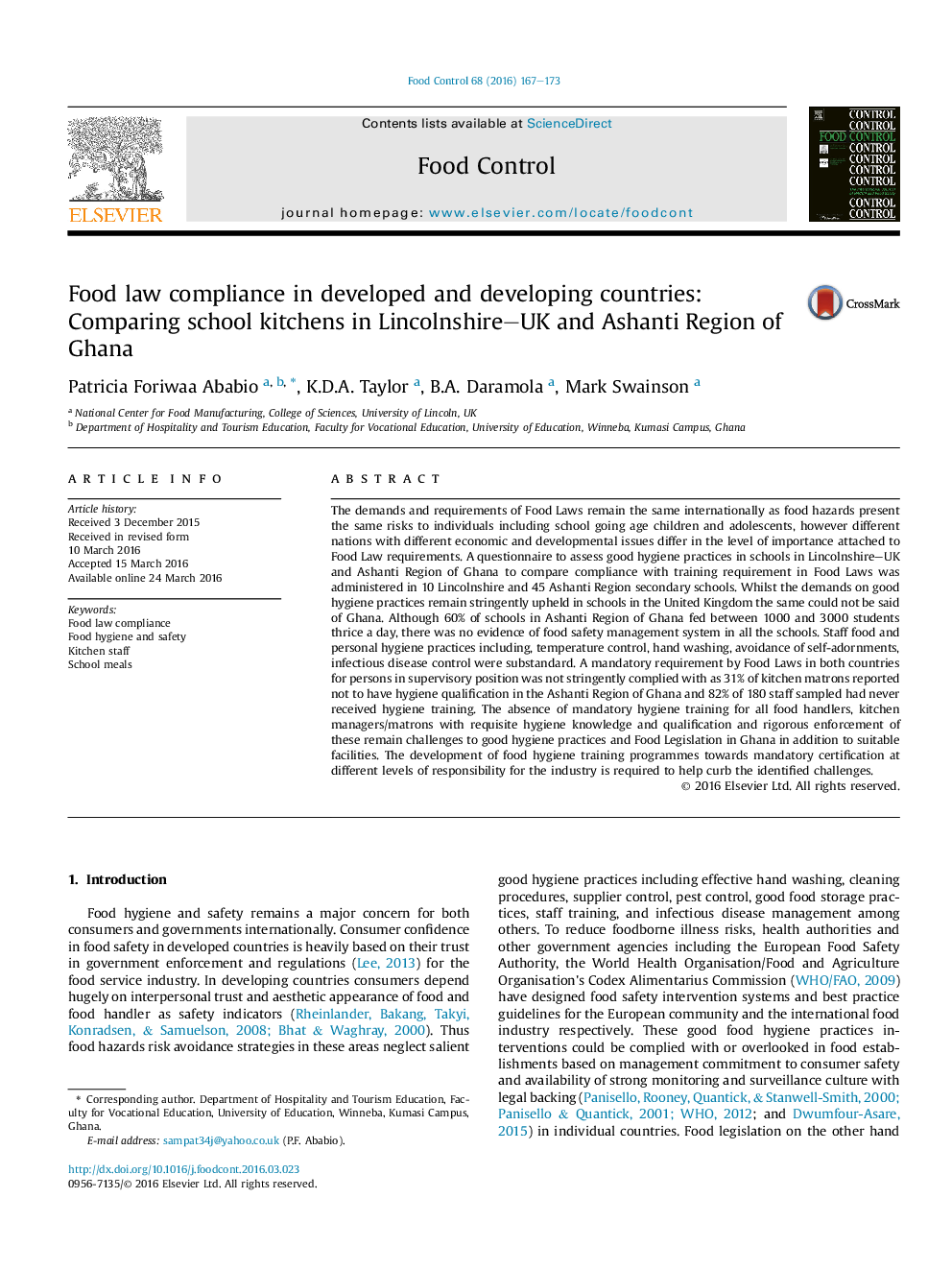| کد مقاله | کد نشریه | سال انتشار | مقاله انگلیسی | نسخه تمام متن |
|---|---|---|---|---|
| 4559038 | 1628394 | 2016 | 7 صفحه PDF | دانلود رایگان |

• Legal requirement to train staff was enforced in Lincolnshire whilst 82% of staff in Ashanti Region had no training.
• Food safety management systems were absent in Ghanaian schools who fed between 1000 and 3000 students three meals daily.
• 23% of kitchen staff sampled in Ghana were not likely to report their FBD infections to their managers at work.
• 23% kitchen staff from Ghana were not likely to remove their jewellery during food preparation and service.
• 4% of kitchen staff in Ghana were not likely to wash their hands after visiting the toilet.
The demands and requirements of Food Laws remain the same internationally as food hazards present the same risks to individuals including school going age children and adolescents, however different nations with different economic and developmental issues differ in the level of importance attached to Food Law requirements. A questionnaire to assess good hygiene practices in schools in Lincolnshire–UK and Ashanti Region of Ghana to compare compliance with training requirement in Food Laws was administered in 10 Lincolnshire and 45 Ashanti Region secondary schools. Whilst the demands on good hygiene practices remain stringently upheld in schools in the United Kingdom the same could not be said of Ghana. Although 60% of schools in Ashanti Region of Ghana fed between 1000 and 3000 students thrice a day, there was no evidence of food safety management system in all the schools. Staff food and personal hygiene practices including, temperature control, hand washing, avoidance of self-adornments, infectious disease control were substandard. A mandatory requirement by Food Laws in both countries for persons in supervisory position was not stringently complied with as 31% of kitchen matrons reported not to have hygiene qualification in the Ashanti Region of Ghana and 82% of 180 staff sampled had never received hygiene training. The absence of mandatory hygiene training for all food handlers, kitchen managers/matrons with requisite hygiene knowledge and qualification and rigorous enforcement of these remain challenges to good hygiene practices and Food Legislation in Ghana in addition to suitable facilities. The development of food hygiene training programmes towards mandatory certification at different levels of responsibility for the industry is required to help curb the identified challenges.
Journal: Food Control - Volume 68, October 2016, Pages 167–173